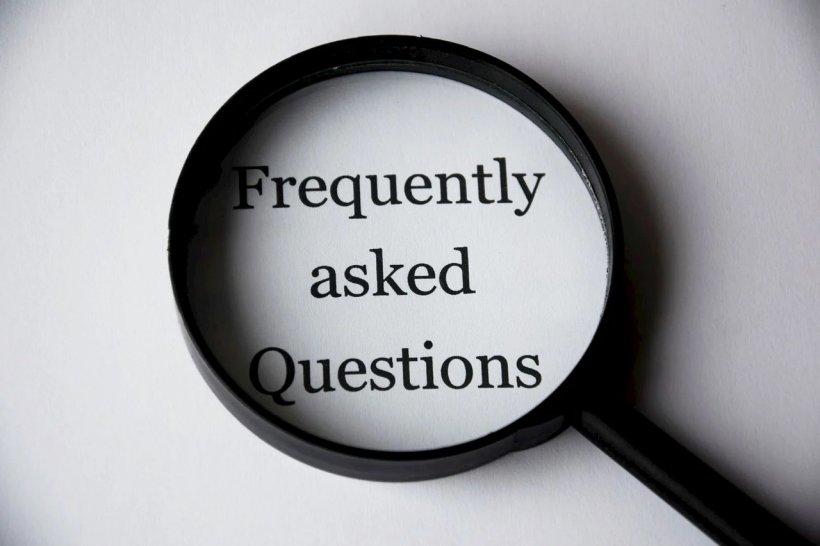
Source: shutterstock/doomu
News • Frequently Asked Questions
What patients want to know about Covid-19 vaccine
This FAQ from the American College of Allergy, Asthma and Immunology is provided to help answer patient questions about COVID-19 vaccines. These recommendations are based on best knowledge to date, but could change at any time, pending new information and further guidance from the FDA or CDC.
Why should I receive a vaccine against Covid-19?
Protection! A COVID-19 vaccination will help keep you from getting COVID-19 or keep you from becoming seriously ill if you get COVID-19. Having everyone get a COVID-19 vaccination is the pathway towards stopping this pandemic. For most people, the benefits far outweigh the risks.
Am I a candidate to get a vaccine?
Anyone who does not have a contraindication for taking the COVID-19 vaccine should receive it. Currently, the only contraindication is a history of a severe allergic reaction to any of the vaccine components, including sensitivity to PEG (polyethylene glycol) and/or polysorbate, which cross reacts with PEG.
While COVID-19 vaccines are not currently approved for children under age 16, safety and efficacy studies in children and adolescents are underway.
How do I know the vaccine is sage?
Experience. Over 70,000 people participated in US clinical trials prior to approval of the current COVID-19 vaccines, and more than 11 million people in the US (and more than 40 million worldwide) have safely received them since approval.
Safety has been demonstrated across a broad range of the population, including different ages, races, and ethnicities, as well as those with different medical conditions.
Currently there are two vaccine available; which one should I take?
Take either one. The Pfizer and Moderna vaccines are very similar and are equally safe and effective. They have both met the rigorous safety standards set by the FDA. The only meaningful, minor difference is that the second dose of the Pfizer vaccine is administered 18-23 days after the first vaccination, while the second dose of the Moderna vaccine is administered 28 days after the first vaccination. You should make every effort to get the same vaccine product for both doses.
The first dose stimulates the immune system to make protective antibodies, and the second dose boosts the production of those antibodies, thereby significantly increasing your protection.
What if I don't get my second vaccination within the window of time that is recommended?
Get your second dose as soon as you can after the minimum recommended time has passed to make sure you are as protected as you can be. Protection offered by a single dose of vaccine has been estimated to be at 50%, and the second dose increases this to more than 90%. According to the CDC, “The second dose should be administered as close to the recommended interval as possible. However, if it is not feasible to adhere to the recommended interval, the second dose of Pfizer-BioNTech and Moderna COVID-19 vaccines may be scheduled for administration up to 6 weeks (42 days) after the first dose.”
Do both doeses need to be with the same vaccine?
Yes, if at all possible. The CDC says every effort should be made to determine which vaccine product was received as the first dose, in order to ensure completion of the vaccine series with the same product. The CDC also says that in exceptional situations in which the first-dose vaccine product cannot be determined or is no longer available, any available mRNA COVID-19 vaccine may be administered at a minimum interval of 28 days between doses to complete the mRNA COVID-19 vaccination series. If two doses of different mRNA COVID-19 vaccine products are administered in these situations (or inadvertently), no additional doses of either product are recommended to be given.
Can I get Covid-19 from the vaccine itself?
No. The COVID-19 vaccines do not contain any live virus. In fact, the two currently available COVID vaccines are actually made from a small piece of RNA (that contains no virus). This activates your immune cells to make antibodies against the spike protein of the virus, which means that if/when you are exposed to the virus you will already have protective antibodies waiting and ready to go.
The RNA itself degrades quickly and then leaves your body, which is one of the reasons these vaccines are so safe.
How often do I need to get a Covid vaccine? Annually, like the flu shot?
The answers to these questions are still unknown, and this will be closely monitored as more data becomes available.
How long will protection last following vaccination?
We do not yet know how long protection will last following vaccination but are measuring this in both clinical trials and among groups currently being vaccinated.
What are the side effects from the vaccine?
Most people do not have serious problems after being vaccinated. Your arm may be sore, red, or warm to the touch at the injection site, as can happen with injections of any kind. As sometimes happens with a vaccine, you may experience a low-grade fever, headache, and fatigue during the first 24 hours. These symptoms usually go away on their own and are a sign that your immune system is doing exactly what it is supposed to do: working and building up protection against disease.
No long-term side effects have been identified for the currently available vaccines.
What about allergic reactions to the vaccine?
There have been reports of a few patients experiencing anaphylaxis (a severe allergic reaction) after getting a COVID-19 vaccine. These are rare, occurring less than once for every 100,000 injections. As a result, the CDC issued guidance related to the COVID-19 vaccines and severe allergic reactions.
Allergic reactions to foods, medicines, or bee stings are not a reason to avoid the vaccine. However, if you have a history of anaphylaxis for any reason, we recommend your vaccination be administered in a facility that can treat allergic reactions and that you are observed for 30 minutes after receiving the vaccine.
Administration of the vaccine with other immunizations or biologics has not been studied. Do not take a COVID-19 vaccine on the same day as your allergy injection or biologic administration. The CDC recommends a minimum interval of 14 days before or after administering other vaccines, such as the flu shot.
If you have specific questions or concerns about the vaccine and whether you are a candidate to receive it, please schedule a visit to talk with an experienced allergy/immunology provider about it.
I've already had Covid - Do I still need to get the vaccine?
Yes. The immunity offered by the vaccine may offer better/longer protection than the virus itself.
It is safe to receive the COVID vaccine starting after COVID symptoms have resolved. If possible, get the vaccine within 90 days of getting sick from COVID 19, as your antibody protection may begin to wane by then. Wait 90 days to receive the COVID-19 vaccine if you received convalescent serum or monoclonal antibodies during your illness.
Do I need to wear a face mask and avoid close ontactwith others if I have received to doses of the vaccine?
Yes. While experts learn more about the protection that COVID-19 vaccines provide under real-life conditions, it is important for everyone to continue using all the tools available to us to help stop this pandemic, like covering your mouth and nose with a mask, washing hands often, and staying at least 6 feet away from others.
There is not enough information currently available to say when CDC will stop recommending that people wear masks and avoid close contact with others to help prevent the spread of the virus. Until we get the pandemic under control, all precautions should be taken to reduce risk of transmission among people.
Source: American College of Allergy, Asthma and Immunology (ACAAI)
29.01.2021







